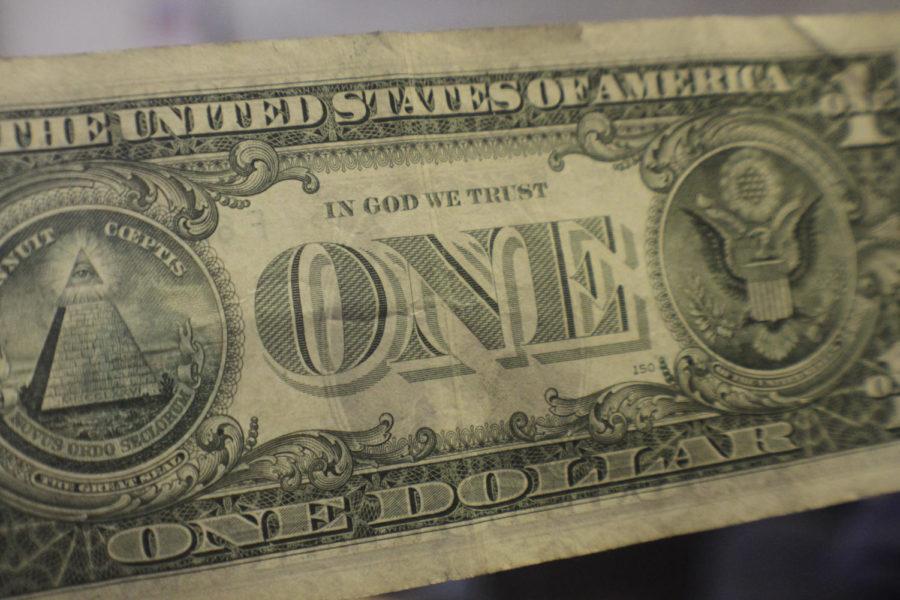Brown: Declare trust in people, not God
March 5, 2014
It is often said that most fights between married couples involve finances. However, our nation as a whole also has disputes about money outside the home. Of course there are plenty of political disagreements as to how we should spend our funds, but our controversies stretch to a more fundamental level, even down to the very words we put on our currency.
For decades, there has been conflict over the use of the phrase “In God We Trust,” minted and printed on our nation’s coins and bills. Aside from concerns, such as those of President Theodore Roosevelt, that putting the name of God on money is near-sacrilege, it is not at all clear why our government should be endorsing a belief in God. It is perhaps even less clear why we as a country should be claiming to have placed our trust in God.
For those unfamiliar with the history of the phrase, it has not always been a part of our nation, on our money or otherwise. In fact, there is no direct reference to a God in the United States Constitution, and only cursory references in the Declaration of Independence.
There, a claim is made that the “Laws of Nature and of Nature’s God” allow for different peoples to govern themselves independently, and it is said that people are endowed with certain rights by “their Creator.” This is immediately followed by the assertion that governments, which are formed to protect these rights, derive their “just powers from the consent of the governed.”
It could be said that by placing our trust in “God,” we are actually reaffirming the idea that we, as a people, exist free from the tyranny of other, fallible humans. The notion that we refuse to be subject to the rule of others may sound distinctly American, but such a belief has no support in the principles which founded our nation.
Indeed, those that prefer a government vested with divine rule over men and women would find themselves more at home in the archaic British monarchy from which we rebelled. By explicitly stating that people are entitled to govern themselves and that such governments derive their power from the governed, even the Declaration of Independence supports the notion that people, not God, are the trustees of our government.
It would follow, then, that our government, in deriving power from its people, should not simply turn to God for resolution in times of grave conflict or for answers in how we should conduct our day-to-day governance. Throughout our history, this has time and again been the case.
We did not ask God to fight and die so that we could divorce ourselves from Great Britain. We did not pray that God would send from on high the words of our Articles of Confederation or of our Constitution. We did not rely only on God for the strength to keep our nation together through the rending divisions of a Civil War. God did not miraculously remove the shackles of slavery from the hands and feet of Americans. God alone did not, years later, inspire movements aimed at achieving equality for all regardless of race, creed, gender or any other differences that separate us.
We do not await God’s judgement for an answer to the question of who our president should be. We do not ask God to write our laws or to convene our courts. God does not don a uniform to protect our freedom, to defend those that cannot defend themselves or to help those in need.
All of these things can certainly be attributed, depending upon one’s beliefs, to the good work and inspiration of God above, but they have something more universal in common. They require people: our people. To accomplish all of these tasks, we have continually turned, in addition to any personal and communal prayers, to the people of the United States of America.
Many of us place complete trust in our own version of God, and that can be a wonderful thing. It is clear, though, that our government and our country itself does not place its collective trust in any God. As has always been the case, and as will likely always be the case, the United States places trust in its people.
In the spirit of that trust, we should, all of us, demand a change. No matter what our personal beliefs regarding God and religion are, every American should recognize that it is the people of the United States that have always been the earthly stewards of this, our earthly nation.
To do this, we need only declare that which we have reaffirmed daily since we first declared our independence: “In Our People We Trust.”

















